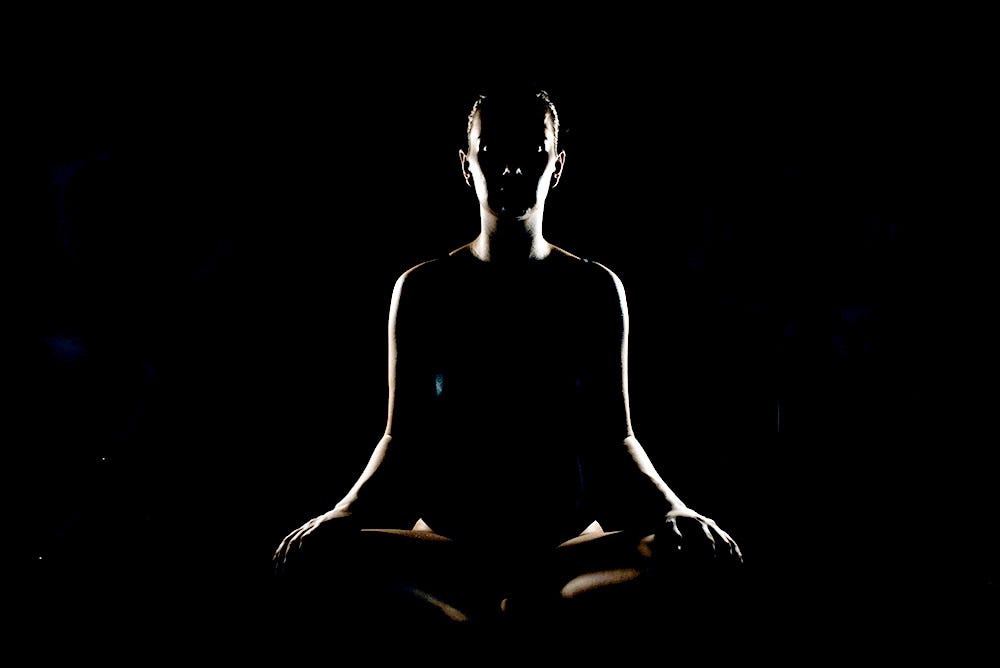
Philosophy | Buddhism
The concept doesn’t make any sense: who was born, who is listening, who is meditating, and ultimately, who is going to die?
The concept of no self in the Buddha’s teachings is often confusing for many. Who experiences anger, love, effort, memories, or rebirth if there is no sense of self? What is the significance of claiming that there is no self? Occasionally, individuals may feel apprehensive about this concept, envisioning a scenario where they vanish in a puff of smoke, akin to a magician’s illusion.
There are multiple ways to comprehend the concept of no-self. The Buddha explained that what we commonly refer to as “self” is a combination of various mental and physical elements that work together, giving rise to the perception of being a woman or a man. Then we connect with that image or appearance, considering it to be “me” or “mine,” imagining it to possess some inherent self-existence. As an illustration, upon waking up in the morning, we gaze into the mirror, acknowledge our reflection, and contemplate, “Indeed, it is once again me.” Various concepts are added to this sense of self: gender, age, emotional state, etc.
Upon closer examination of our experience, it becomes evident that there is no central entity to which experience points. Instead, it can be described as a continuous flow of “empty phenomena.” Experience lacks personal ownership, as it lacks a distinct entity to which the arising and changing phenomena can be attributed. A rainbow is an excellent illustration of this. When we step outside after a rainstorm, there’s nothing quite like that moment of pure joy when a rainbow graces the sky. Most of the time, we appreciate the view without delving into the true essence of what is occurring. However, upon closer examination, it becomes evident that the concept of a “rainbow” is intricately tied to the specific combination of air, moisture, and light.
When all the elements come together in the right place and at the right moment in time, they can bring something into being that wasn’t there before, and when they no longer exist, that something disappears as well. The same can be said of us, and we come into being due to elements aligning. The law of entropy states that there will be some inherent disorder in every system, so we must also disappear.
“Our deepest worry,” writes poet and Zen master Thich Nhat Hanh, “is that we will be nothing when we die. If we believe that we cease to exist when we die, we have not delved thoroughly inside ourselves….”
Every individual is like a vibrant rainbow, a captivating manifestation that emerges from the intricate combination of mind and body. So when emotions arise, whether anger, sorrow, love, or joy, it is simply the natural expression of those emotions. Various emotions come and go, each effortlessly revealing its unique essence. An issue arises when we start associating these feelings, thoughts, or sensations with our sense of self: feeling angry, feeling sad. When we identify with these experiences, we confine ourselves energetically within a prison of self-separation.
To explore your awareness, try something different when caught up in a powerful emotion, reaction, or judgment. Instead of getting invested in the story, please focus on the physical sensation accompanying it. Often, this sensation can be felt as a tightness or contraction in the area around your heart. One may experience a feeling of tightness or pressure in the center of the chest. Just take a moment to unwind, letting the emotions and sensations exist without resistance.
Embrace the vastness of the space where all things unfold. At that very moment, the feeling of being apart fades away, and the realization of the profound connection between compassion and the absence of self becomes evident. It appears that no one is present. According to the Chinese poet Li Po, there is a sense of unity and solitude when sitting with a mountain until only the mountain remains.
If you follow me for more thoughtful articles, I’ll appreciate it!